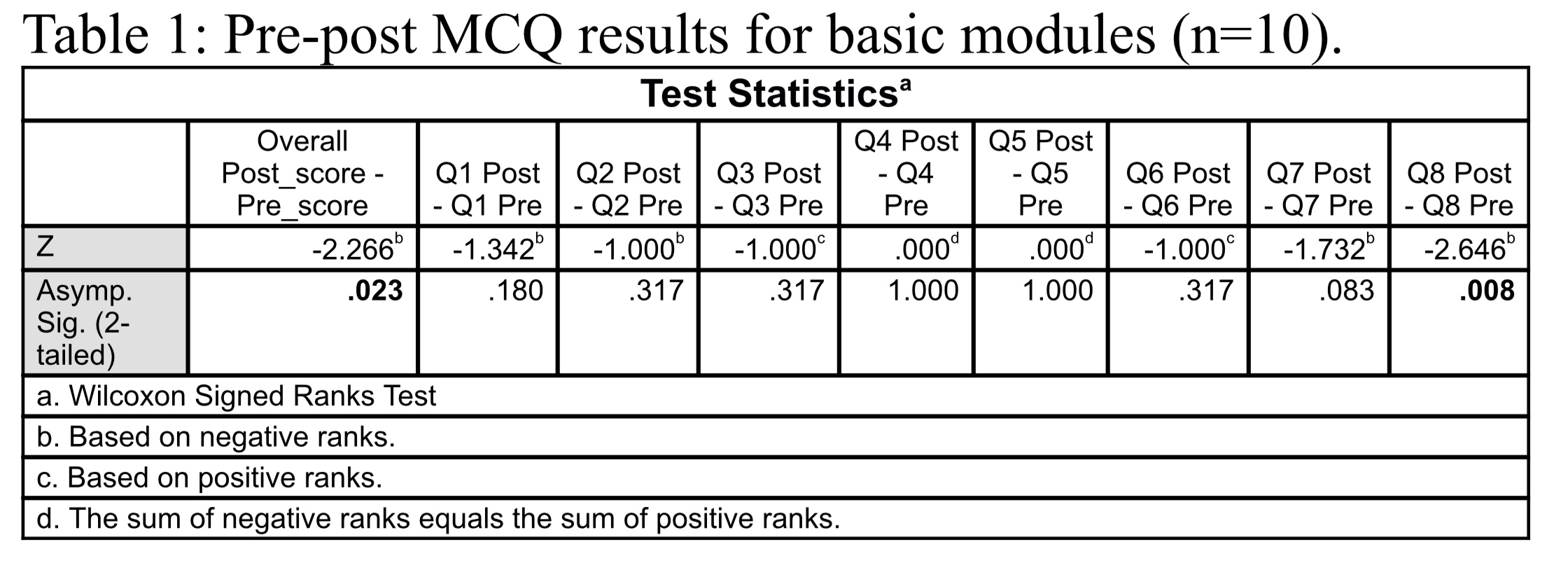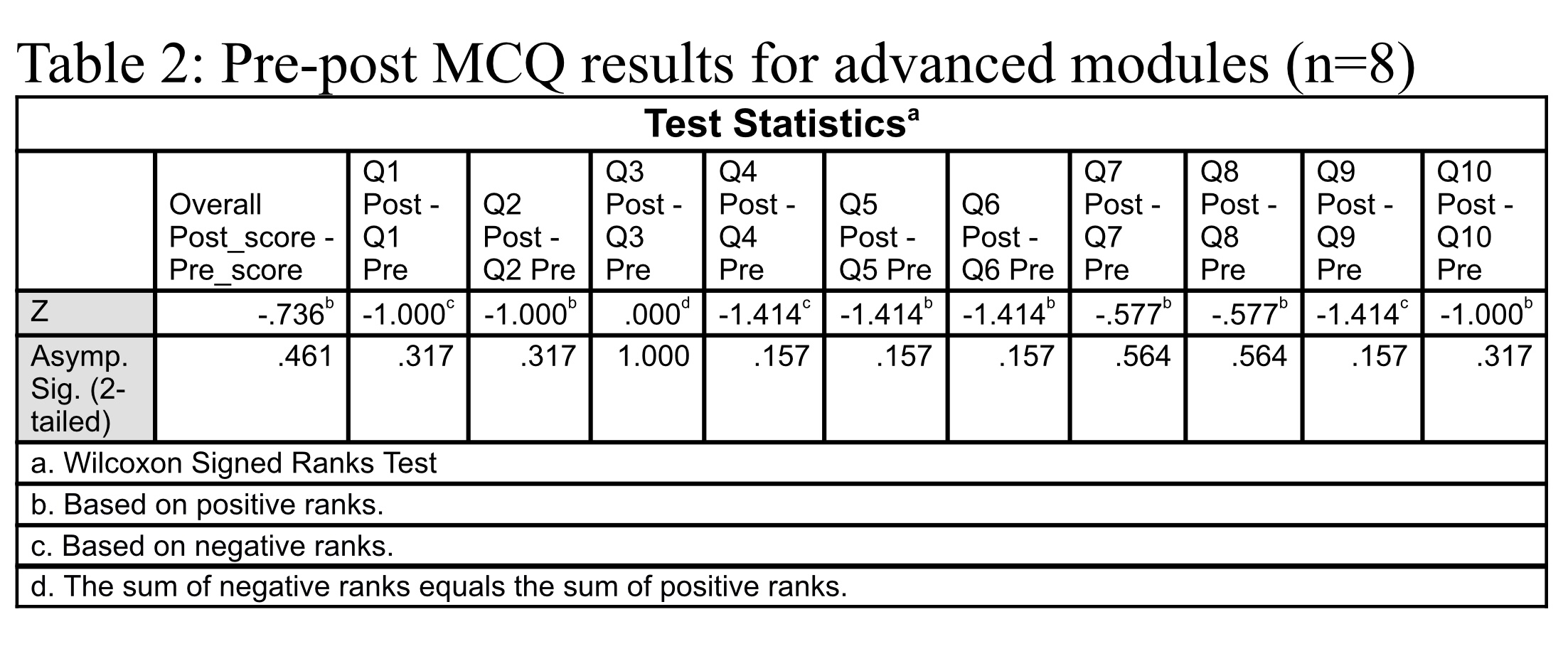Design and delivery of a global health education program for radiation therapists in Cambodia.
Eric Pei Ping Pang,
Singapore
PO-2288
Abstract
Design and delivery of a global health education program for radiation therapists in Cambodia.
Authors: Muhammad Tarmizi Bin Pawi1, Li Hoon Lim1, Melissa Wei Mei Koh1, Sze Yarn Sin1, Pei Lu Tan1, Jeannie Yi Xin Lin1, Nurul Tassha Effira Binte Mohamed Anwar1, Siti Nur Aryani Bte Rahim1, Than Than Ma1, Eric Pei Ping Pang1
1National Cancer Centre Singapore, Division of Radiation Oncology, Singapore, Singapore
Show Affiliations
Hide Affiliations
Purpose or Objective
A co-learning collaboration between Calmette Hospital, Cambodia (the host community partner) and National Cancer Centre Singapore, SingHealth (the content partner) was established. An educational program was tailored to enhance knowledge and skills of radiation therapists in Cambodia.
Material and Methods
The program was tailored based on discussion with Calmette Hospital via a needs analysis. The content was delivered online via didactic lectures (26 hours over 7 weekend sessions) categorized into basic and advanced modules (5 months apart) between November 2021 and Apr 2022 respectively. The program titled, “Principles of radiotherapy practice and research”, was designed with site-specific focus on patient and radiation safety, patient positioning, treatment and common side effects, various imaging techniques and verification, motion management applications, research and professional development. Pre-Post-evaluation multiple choice questions (MCQ) were administered to assess effectiveness of training.
Results
A total of 10 attendees attended the basic modules and 8 participants for the advanced modules. Based on Pre-Post-MCQ matched datasets, some improvements were observed in the basic program with improved overall median scores from 50% (Pre) to 81.3% (Post) (8 questions) (p<0.05) (Table 1). Similar outcomes were measured for advanced modules; however, no significant improvement were observed (Table 2).


Conclusion
Remote didactic lectures can be delivered effectively. However, reduced efficacy in the advanced modules could be attributed to various factors such as difficulty level, relevance to local application due to technology differences, casemix and depth of engagement compared to practicum or in-person mode.